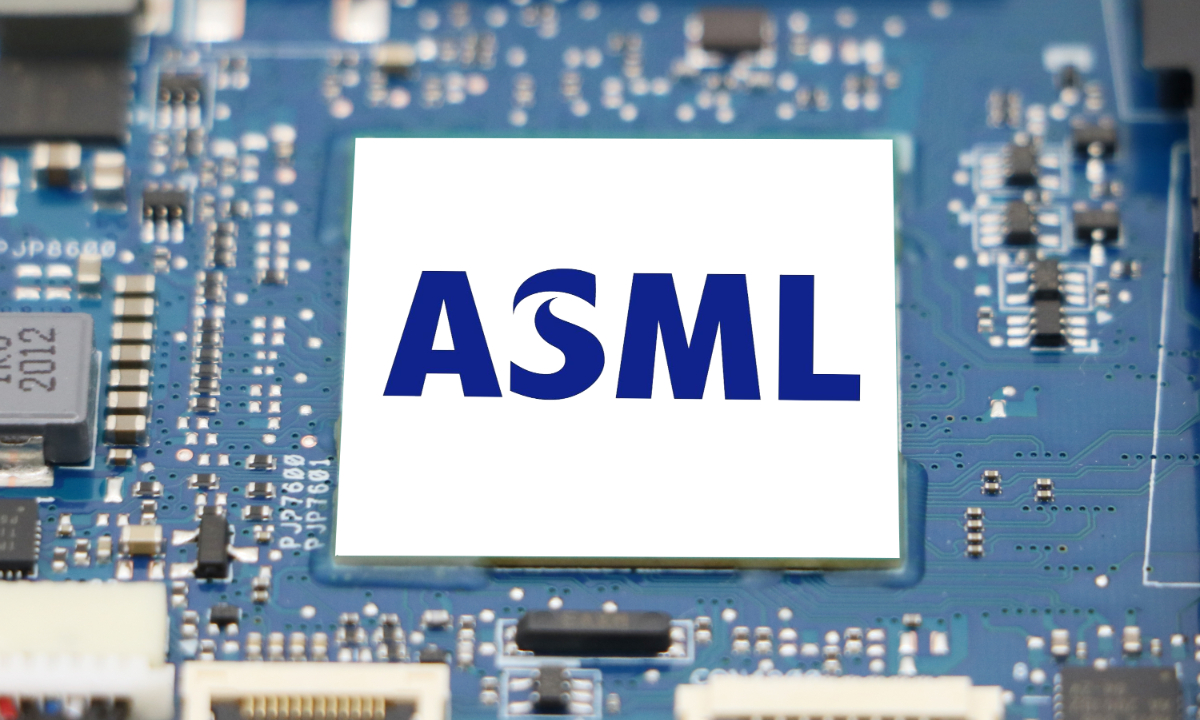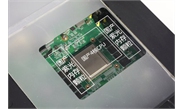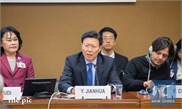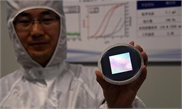China firmly opposed to Netherlands’ new chip restrictions: Foreign Ministry
Dutch companies to suffer heavy revenue loss: experts

ASML Photo: VCG
China firmly opposes a move by the Netherlands that interferes with and constrains normal trade between Chinese and Dutch firms through administrative means, and China has lodged representations with the Dutch side, the Chinese Foreign Ministry said on Thursday, in response to the European country's new chip export restrictions on China.
"From the perspective of maintaining its own interests, we hope the Dutch side will not follow a certain country in abusing export controls, and instead work with China in jointly maintaining the stability of global industrial supply chains, and the free and open international trade order, for the common interests of both countries and their companies," Chinese Foreign Ministry spokesperson Mao Ning said on Thursday.
A certain country, in order to deprive China of its developmental rights and perpetuate its own hegemony, has repeatedly abused the national security concept, politicized tech and trade issues, and used them as a tool. It even pressues other countries it calls "friends" through economic coercion to join its export restrictions against China, Mao noted.
Mao noted that while it is understandable for a country to wish to maintain its tech lead, it should be achieved via fair competition and not through politicizing and weaponizing trade and economic issues.
The so-called reliance on China is the result of market forces and company decisions, Mao pointed out.
She stressed that China hopes the Netherlands could maintain an objective and fair position and follow market principles.
Dutch Trade Minister Liesje Schreinemacher announced export restrictions on the "most advanced" semiconductor technology, saying the new controls will be introduced before the summer. It specified that one technology that will be affected is deep ultraviolet lithography (DUV) systems, Reuters reported.
"Because the Netherlands considers it necessary on national security grounds to get this technology into oversight with the greatest of speed, the Cabinet will introduce a national control list," read the letter.
ASML said that the move may only affect some models. "Although ASML has not received any additional information about the exact definition of 'most advanced', ASML interprets this as 'critical immersion,' the company said in a statement sent to the Global Times on Thursday. That involves its TWINSCAN NXT:2000i and subsequent immersion systems.
The company said that it did not expect the measures will have a material effect on its financial outlook.
DUV is less advanced than extreme ultraviolet lithography (EUV) machines but is indispensable in the production of many types of semiconductors. Sales of ASML's EUV tools have been restricted since 2019.
Experts said the Netherlands' latest move implies that it has given in to US pressure, which may deal a deadly blow to the Netherlands' semiconductor machinery sector and harm sound China-Netherlands trade and economic relations.
"The Netherlands' decision is catastrophic to both ASML and the European country's semiconductor industry, while the US will not make up for their losses," Xiang Ligang, director-general of the Beijing-based Information Consumption Alliance, told the Global Times on Thursday.
ASML exports about 80 DUVs to China per year, accounting for around 15 percent of the company's revenue, Xiang said. While leading chipmakers across the world have cut output as a result of the US' coercions, China is adding about 100 new production lines of mature manufacturing processes every year.
If the Netherlands controls semiconductor machine exports to the fastest-growing market, ASML and the Netherlands' chipmaking industry will see a significant revenue contraction, he said.
In addition, China has been doubling its efforts to make breakthroughs in building its own lithography machines. Although it takes some time, Chinese companies will sooner or later be able to produce DUVs that can compete with those of ASML, he said, noting that this will affect ASML in the long run.
As an industry critical to the development of the new economy in the 5G era, the chip sector has maintained close industrial and supply chain cooperation globally.
In general, US firms such as Qualcomm and Intel lead in chip design, European companies such as ASML provide advanced manufacturing equipment, Japan has many upstream materials like photoresist, while South Korea's Samsung and SK Hynix are giant memory chip producers and the island of Taiwan dominates the foundry market.
The Chinese mainland is the world's largest market for chip products. Analysis by London-based data and analytics firm GlobalData showed that China consumes about 40 percent of all the chips made globally and it spent over $400 billion on semiconductor-related imports in 2021, according to media reports.
"The Netherlands is unlikely to completely give up economic and cooperation with China, as the European country has sober considerations for its own interests," Ma Jihua, a veteran industry analyst, told the Global Times on Thursday.
The deal between the Netherlands and the US may be just a symbolic move that the Biden administration eagerly wants as a display of US hegemony, while the Netherlands is unlikely to blindly follow the US, Ma said.
He gave the example of some European countries' move on excluding Huawei's telecom equipment three years ago. "Under pressure from the US, some European countries including Germany, the UK and France claimed they would ban local operators from using Huawei equipment. It turned out to be a failure."



